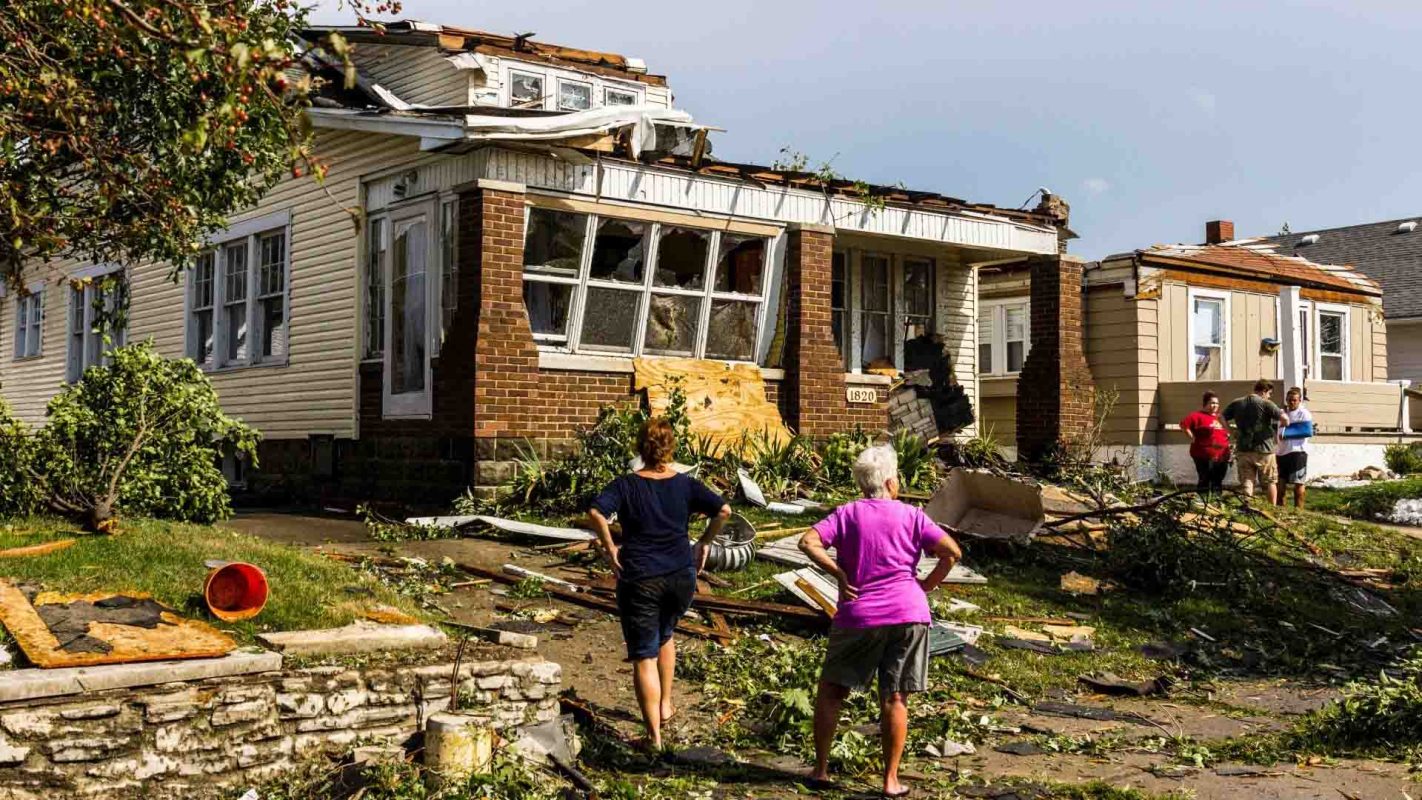According to a new U.S. Census Bureau survey, around 3.3 million adults in the United States were displaced by natural disasters in the last year.
We talk a lot about changing temperatures and extreme weather events becoming more and more prevalent in the future — but this data drives home the fact that, for a massive number of people, that future has already arrived with devastating consequences. And that number will only continue to rise unless drastic action is taken.
Hurricanes, most notably Hurricane Ian and Hurricane Nicole, were responsible for the most displacement, driving around 1.9 million people from their homes. Another 665,000 people were displaced by flooding, nearly 660,000 by fires, more than 320,000 by tornados, and 685,000 by other natural disasters.
Around 17% — about 550,000 people — were never able to return to their homes.
It may be tempting for many Americans to believe that extreme weather events don't impact them, but the data shows that this is simply not the case.
A recent report from Rebuild by Design showed that 90% of the counties in the U.S. have experienced some sort of climate disaster between 2011 and 2021.
According to climate scientist Katharine Hayhoe, the single most important thing that we as individuals can do to combat this ever-worsening problem is to simply not shy away from it — to talk about it with friends, family, and community.
By establishing connections based on real shared values and linking those values back to a desire to see life on this planet continue to be able to sustain itself, Hayhoe says we can sway people who have previously been resistant to the concept of climate change.
"What we need to fix this thing," she says, "is rational hope."
Want more? Follow The Cool Down on Instagram and join our Weekly Newsletter for cool stories and easy tips that save you money, time, and our planet.








